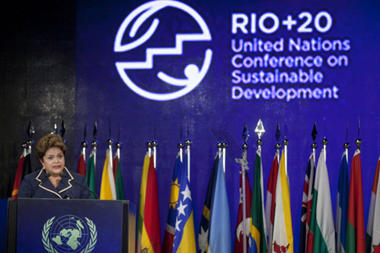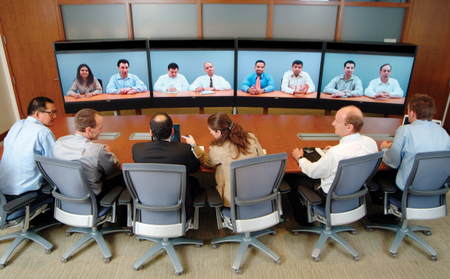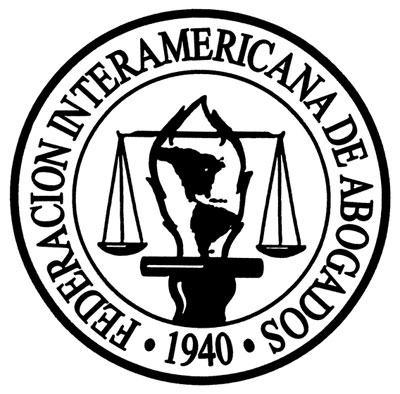IABA: E-Sustainability – Law and Technology Working for the Environment
by CFI | August 21, 2012 7:22 pm
By Leonardo A. F. Palhares and Caio Iadocico de Faria Lima
The times we live in have been shaped by evolution and technology in a very interesting way.
 [1]In June 2012, the United Nations Conference on Sustainable Development, also known as Rio+20, gathered 188 Heads of States and delegations in Brazil to discuss the progression of global environmental protection and, above all, the future prospects for the environment and its relationship with society. Apart from the criticism over the results obtained in the meeting, two points stand out, and they deserve special attention in this article: (i) the impressive number of Heads of States and delegations who attended the meeting in Rio de Janeiro to discuss environmental preservation in the midst of global economic crisis and (ii) the fact that, for the first time, the discussion broached, with the due attention, the relationship between environmental protection and the use of technology in our “Information Society.” [1]
[1]In June 2012, the United Nations Conference on Sustainable Development, also known as Rio+20, gathered 188 Heads of States and delegations in Brazil to discuss the progression of global environmental protection and, above all, the future prospects for the environment and its relationship with society. Apart from the criticism over the results obtained in the meeting, two points stand out, and they deserve special attention in this article: (i) the impressive number of Heads of States and delegations who attended the meeting in Rio de Janeiro to discuss environmental preservation in the midst of global economic crisis and (ii) the fact that, for the first time, the discussion broached, with the due attention, the relationship between environmental protection and the use of technology in our “Information Society.” [1]
Focusing on this second matter, the Inter-American Bar Association, through its Committee on Telecommunications Law, Science and Technology, was invited by the UN, along with the Brazilian Chamber of Electronic Commerce (www.camara-e.net ), to organize an “On-Site Event” that dealt with the subject of e-sustainability and how the State, Business and Civil Society in general could contribute to environmental conservation in light of the use of everyday technology that now is present in our “online” life in the Information Society. And so it was done. The seminar on “e-Sustainability: Law and Technology in the Service of Environmental Protection” was an exciting success. With the participation of national and international associations, representatives of Brazilian government and multinational companies, the discussions regarding the subject have shown how important the role of the digital world in preserving the environment actually is. Issues of how to organize the next steps towards an online presence in this new Sustainable Information Society were also raised.
“… the discussions … have shown how important the role of the digital world in preserving the environment actually is.”
This article aims to simply and briefly, bring up these major steps free of technical language. We will define the roles of the most important players that are involved in this issue (Item 1) and will also talk about the creation of metrics that would help in the calculation of the benefits achieved and that can also be an incentive to the adoption of measures and creation of public and private policies (Item 2).
I – Who does what? The role of the individual in the new Sustainable Information Society
The participation of Heads of States in Rio+20 and all the repercussion that the subject of environmental protection has generated in the recent years show how outdated the concept of environmental degradation by Brazilian Professor Eduardo Viola [2] as being a “disease of the rich” really is. The concept of sustainable development, despite the triviality of its use, is already known or at least understood by most people.
However, it is always necessary to define each one’s roles and what can and should be done to put the debate into action and, also, the share of responsibility for using natural resources each one of us is responsible for. The definition of roles, in this regard, seems to be fundamental for the adoption of practices of effective policies for environmental protection, including the virtual environment.
1.1 – The Role of State in the Development of e-Government
The definition of simple, effective and efficient public policies, focused on the sustainable development should, as a starting point for any analysis, relate to the controls and incentives that should be transferred to society, with regard to defining the principles of its own activity in management of public affairs.
In this sense, it is essential that the effective search for sustainability in the Information Society goes through the assumption, by the States, of a model of governance that takes advantage of the available technological resources. The reduction in paper production, with the adoption of electronic and online models for the rendering of services to citizens should be a prerogative of every State, in the adoption of what we call e-Government.
 [2]
[2]Brazil’s President Dilma Rousseff at Rio + 20
In this sense, as the headquarters of Rio+20 and also the headquarters of the e-Sustainability Seminar, Brazil has been fulfilling its role in the struggle for dematerialization of its administrative and bureaucratic processes. Assuming an ambitious model of e-governance, Brazil has adopted in recent years, a structured planning for the adoption of digital tools and also on-line structuring of its functions and services, placing them at the disposal of all citizens, in virtual environments, avoiding, with this policy, unnecessary travels, overloading of the public transportation system, expenses with such materials and generation of waste, in a way to prevent the emission of carbon into the atmosphere.
Income tax declarations are annually sent to the Brazilian Internal Revenue Service via internet, consultations in public systems, registries, court proceedings and even the public consultation of bills can be freely accessed online by any Brazilian citizen. From the creation of a certification system based on digital identities, more than 5 billion electronic invoices were issued in Brazil in 2011. Also following the National Broadband Plan, Brazil already has more than 70 million people connected to the internet and with access to all e-Citizen services offered by the State. Similar numbers and examples are increasing in the Brazilian government, generating general economy of procedures, materials, and most importantly, natural resources.
But none of these advances would be possible if there wasn’t a conjunction of the following four factors, which are essential commitments for the creation of any structure of e-Government: political commitment to transformation of the State and the breaking of bureaucratic resistance paradigms; (ii) adoption of well-structured planning based on effective policies to the adoption of digital tools of government; (iii) strengthening of the role of state institutions focused on technology and the creation of a connected society; and, especially (iv) the creation of regulatory frameworks allowing the practice all points listed above.
1.2 – The Role of Corporations and Voluntary Commitments
When the UN launched the Global Compact (http://www.unglobalcompact.org[3]), a free initiative designed for the adoption of corporate social responsibility practices, some leaders of major corporations in the world declared that after centuries of responsibilities assigned to the States, it was time to let the leadership of the relevant issues of our global society to corporations.
Apart from the matters that may arise from the possible interpretations of this positioning, the importance of the role of corporations when it comes to environmental protection is undeniable, especially if considered the model for economic growth currently adopted. The corporations are responsible for a huge part of the use of natural resources and activities that are or might be potentially harmful to the environment are originated in their production channels.
The most important question is how to transform the corporations from antagonists of environmental protection to partners in the friendly environmental protection.
The answer may lie in volunteerism or in the concept of “faire ensemble”, fairly used by French jurists. Current experiments on environment preservation policies show how obsolete public policies based on command and control [3] are enforced (if at all) at a minimum and, instead, how the environmental protection instruments can be reinstated (through green taxation or green markets for carbon credits, for example). The central idea supported here is that the participation of corporations could achieve higher levels and with more commitment if the direct benefits of adopting environmentally sustainable practices could be felt.
The role of corporations, before the prism of volunteerism, could be expanded beyond obligations related to the pure, hard core of their activities and their impacts on the environment to encompass other peripheral fields of its operations that could also represent environmental gains, such as consumer awareness office supplies, paper, energy, computers, travel of executives, etc [4]. It is precisely in this point that technology can help the Information Society to do their part and help in the environmental protection.
But how to engage the companies throughout the world without the threat of a strong State sword over their heads? The answer may lie below.
II – Generation of Metrics and Environmental Marketing for the Measurement of Environmental Benefit
The growing ecological awareness of citizens nowadays is the greatest ally that sustainable development has in the world. It is expected that the environment is protected and initiatives for this purpose are recognized, validated and preferred by the market in general. Hundreds of studies and analysis point the fact that consumers tend to prefer companies that have their brands and philosophies aimed at environmental responsibility.
Regarding the adoption of everyday technologies for the protection of environmental resources, the problem is the lack of simple and objective metrics that can serve as a reference for states or corporations. The lack of such metrics makes it impossible for states and corporations to understand the results that small actions could have, both from the standpoint of costs and impacts on the environment and, on the other hand, and even more important, prevent the market and consumers in general to understand and value the importance of such actions.
 [4]Due to the inexistence of any recognized standard to demonstrate how the environment is benefited by company policies and initiatives that could be easily applied, such as digital execution of agreements or using video conference resources more often (instead of a proper meeting, for example, to which it would be necessary to print papers, move people, generate pollution, maybe overload public and private transportation, etc.), simple and meaningful actions are not being taken. Likewise, the lack of such metrics, innovative public policies also cease the creation of the environmental preservation cycle to e-Sustainability or the Sustainability of Information Society ceases its growth.
[4]Due to the inexistence of any recognized standard to demonstrate how the environment is benefited by company policies and initiatives that could be easily applied, such as digital execution of agreements or using video conference resources more often (instead of a proper meeting, for example, to which it would be necessary to print papers, move people, generate pollution, maybe overload public and private transportation, etc.), simple and meaningful actions are not being taken. Likewise, the lack of such metrics, innovative public policies also cease the creation of the environmental preservation cycle to e-Sustainability or the Sustainability of Information Society ceases its growth.
Such studies along with the creation of metrics that allow simple calculation of the positive impacts of the adoption of online services to replace traditional media services performed via “physical” could allow the adoption of several behavioral actions by individuals and corporations or even encouraged by coherent and cohesive public policies.
This is not rocket science, just commitment, study and calculation.
Inspired by the winds blown in Rio+20 and based on cooperation agreements that were signed in the course of e-Sustainability Seminar: Technology and Law in the Service of Environmental Protection, two significant actions are being taken by the associations that organized the event.
On one hand, the Inter-American Bar Association started acting on the assembly of a Digital Rights Inter-American Observatory, with the purpose to create a reseau of lawyers for all the Americas that could contribute to the development of standards and rules that can encourage and enable the adoption of sustainability practices for the Information Society.
Secondly, in cooperation with ITI – National Institute of Information Technology (www.iti.gov.br), the Brazilian Chamber of Electronic Commerce started works and studies for the preparation of the first national model for e-metrics sustainability, which, when duly published, will allow with precision, the quantification of the environmental benefit of all technological measures for the preservation of environmental resources and environmental protection in Brazil. This innovative initiative will, once finalized, be an example for all Latin American countries from the Digital Rights Inter-American Observatory.
These are really interesting times to be lived and even more interesting when we have the opportunity to contribute to the development of our society through actions that really count.
Each one of us can contribute to our ability.
About the Authors
 [5]Leonardo A. F. Palhares
[5]Leonardo A. F. Palhares
Brazilian Lawyer, partner at corporate law firm Almeida Advogados, President of the Committee XVI: Telecommunications, Science And Technology Law of the Inter-American Bar Association and Vice President of Strategy at the Brazilian Chamber of Electronic Commerce.
 [6]Caio Iadocico de Faria Lima
[6]Caio Iadocico de Faria Lima
Brazilian Lawyer, associate at corporate law firm Almeida Advogados, member of the Inter-American Bar Association and Joint Coordinator of the Legal Committee of the Brazilian Chamber of Electronic Commerce.
About Inter-American Bar Association (IABA)
 [7]
[7]
Founded on May 16, l940 by a group of distinguished lawyers and jurists representing forty-four professional organizations and seventeen nations of the western hemisphere, the Inter-American Bar Association (“IABA”) represents a permanent forum for the exchange of professional views and information for lawyers to promote the Rule of Law and protect the democratic institutions in the Americas. Approximately every 12 months, the IABA holds an international conference in one of the countries of the Americas during which time special seminars on legal topics are presented and IABA Committees and Sections meet. The IABA also offers regional seminars, has an active Young Lawyers Section, and participates in international conferences and meetings sponsored by other international and national legal organizations.
[2] E. VIOLA, A evolução das políticas ambientais no Brasil (1971-1991), Dilemas Socioambientais e Desenvolvimento Sustentável. Campinas: Unicamp, 1992.
[3] Command and Control is the way we usually identify public policies that assign the role to the state to create standards to be followed (command) and commit to oversee their proper discharge (control), assigning punishments to those who do not obey.
[4] Microsoft recently published an article in Brazil (http://www.camara-e.net/2012/04/18/verdes-sim-com-muito-orgulho/[8]) on their efforts to minimize by 30% the environmental impacts of their office activities in the environment, getting the tools from power management of your servers in a reduction of consumption of over 22 million kWhs of electricity.
- [Image]: http://capitalfinanceint.com/news/wp-content/uploads/2012/05/rio20.jpg
- [Image]: https://cfi.co/wp-content/uploads/2012/08/brazil-president-rio-plus-20.jpg
- http://www.unglobalcompact.org: http://www.unglobalcompact.org/
- [Image]: https://cfi.co/wp-content/uploads/2012/08/teleconferencing.jpg
- [Image]: https://cfi.co/wp-content/uploads/2012/08/leonardo-palhares.jpg
- [Image]: https://cfi.co/wp-content/uploads/2012/08/caio-iadocico-de-farira-lima.jpg
- [Image]: https://cfi.co/wp-content/uploads/2012/08/iaba.jpg
- (http://www.camara-e.net/2012/04/18/verdes-sim-com-muito-orgulho/: https://www.camara-e.net/2012/04/18/verdes-sim-com-muito-orgulho/
Source URL: https://cfi.co/latinamerica/2012/08/inter-american-bar-association-iaba-e-sustainability-law-and-technology-working-for-the-environment/